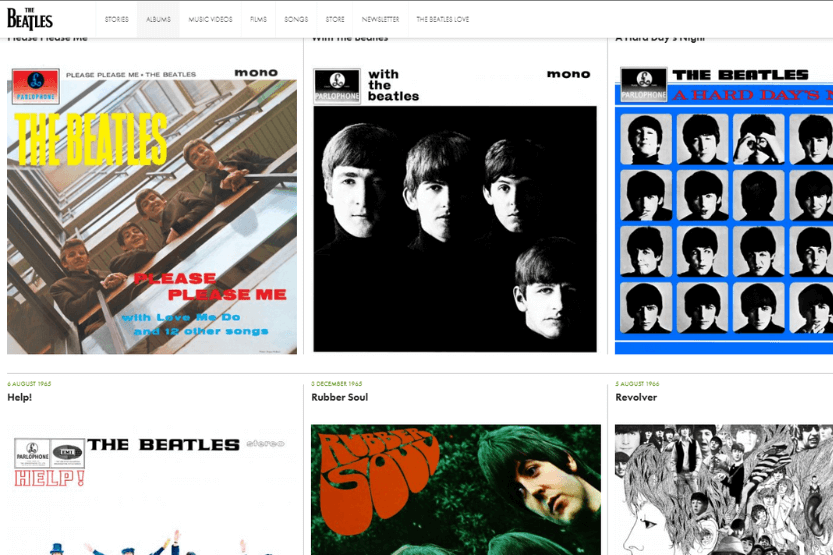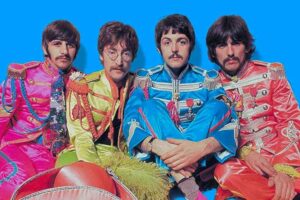Nirvana was an American rock band formed in 1987 in Aberdeen, Washington. The band consisted of Kurt Cobain, Krist Novoselic, and Dave Grohl. Nirvana is considered one of the most influential bands in the history of alternative rock, and their music has had a lasting impact on popular culture.
Kurt Cobain was the primary songwriter for Nirvana, and his songwriting style was characterized by his raw, emotional lyrics and sparse, heavy guitar riffs.
Cobain’s songwriting was deeply influenced by his personal struggles with depression and drug addiction, and his lyrics often dealt with themes of alienation, disillusionment, and self-loathing.
Despite his untimely death in 1994, Cobain’s songwriting has continued to inspire generations of musicians and fans alike.
Throughout their career, Nirvana released a number of iconic songs, including “Smells Like Teen Spirit,” “Come As You Are,” and “Heart-Shaped Box.”
The band’s songwriting was characterized by their ability to blend heavy, distorted guitar riffs with catchy pop melodies, creating a unique and instantly recognizable sound.
Nirvana’s music has had a lasting impact on popular culture, and their legacy as one of the most important and influential bands of all time continues to be felt today.
Kurt Cobain: The Mastermind Behind Nirvana’s Songwriting

What was the first song Kurt Cobain ever wrote?
Kurt Cobain, the lead singer, guitarist, and primary songwriter of Nirvana, started writing songs at a young age.
According to his mother, he wrote his first song at the age of four, which was titled “Fecal Matter.” However, his first recorded song was “Montage of Heck,” which he recorded in 1988 and released in 2015.
Kurt Cobain’s Writing Process
Kurt Cobain’s songwriting process was often spontaneous and intuitive. He would write lyrics and melodies as they came to him, often scribbling them down on scraps of paper or napkins.
He once said, “I usually come up with a melody first, and then I’ll try to write lyrics that fit the melody, rather than the other way around.”
Cobain’s songwriting was heavily influenced by his personal experiences, including his struggles with depression, chronic pain, and drug addiction. He often used his music as a form of catharsis, expressing his emotions and frustrations through his lyrics and guitar playing.
Despite his reputation as a tortured artist, Cobain was also known for his sense of humor and playful approach to songwriting. He often incorporated absurd or nonsensical lyrics into his songs, such as in “Smells Like Teen Spirit,” where he sings, “A mulatto, an albino, a mosquito, my libido.”
In addition to writing the majority of Nirvana’s songs, Cobain also played guitar and sang lead vocals on most of the band’s recordings. His unique voice and unconventional guitar playing helped to define the sound of grunge music in the 1990s.
Overall, Kurt Cobain was a talented and influential songwriter who left a lasting impact on the world of music. Despite his tragic death by suicide in 1994, his music continues to inspire and resonate with fans around the world.
Nirvana’s Band Members and Their Contributions
According to Louder Sound, Nirvana was formed in 1987 by Kurt Cobain and Krist Novoselic, with Chad Channing joining as the band’s first drummer. Over the years, Nirvana’s lineup changed, with Dave Grohl eventually taking over on drums and Pat Smear joining as a touring guitarist.
Kurt Cobain was the band’s primary songwriter, responsible for writing most of the lyrics and music. However, Krist Novoselic and Dave Grohl also contributed to the songwriting process, with Novoselic often providing basslines and Grohl contributing drum parts.
Novoselic’s basslines were an integral part of Nirvana’s sound, providing a driving force behind many of the band’s most iconic songs. Grohl’s drumming was also an essential component of Nirvana’s music, with his powerful and energetic playing style helping to define the band’s sound.
Chad Channing played drums on Nirvana’s debut album, Bleach, and was an important part of the band’s early years. However, he left the band in 1990 and was replaced by Dave Grohl, who played on the band’s breakthrough album, Nevermind.
Pat Smear joined Nirvana as a touring guitarist in 1993, after the release of the album In Utero. He played with the band on their final tour, which ended with Cobain’s death in 1994.
Overall, Nirvana’s band members each played an important role in the band’s success, with Cobain’s songwriting, Novoselic’s basslines, Grohl’s drumming, and the contributions of Channing and Smear all helping to define the band’s sound.
Influence and Inspiration in Nirvana’s Songwriting

Nirvana’s songwriting was heavily influenced by a variety of artists and genres. Kurt Cobain, the band’s frontman, was known for his eclectic taste in music and his willingness to experiment with different styles.
Some of the most significant influences on Nirvana’s songwriting include the Beatles, Black Sabbath, Jimi Hendrix, William Burroughs, and the Ramones.
The Beatles were a major influence on Nirvana’s songwriting, particularly in their use of melody and harmony. Cobain was a fan of the Beatles’ early work, and he often cited John Lennon as one of his musical heroes.
The influence of the Beatles can be heard in Nirvana’s more melodic songs, such as “About a Girl” and “Come as You Are.”
Black Sabbath was another significant influence on Nirvana’s songwriting. The band’s heavy, riff-driven sound helped to shape Nirvana’s more aggressive songs, such as “Breed” and “Territorial Pissings.”
Cobain was also a fan of Tony Iommi’s guitar playing, and he often cited Black Sabbath as one of his favorite bands.
Jimi Hendrix was another major influence on Cobain’s songwriting. Hendrix’s innovative guitar playing and psychedelic sound helped to shape Nirvana’s more experimental songs, such as “Floyd the Barber” and “Scentless Apprentice.”
Cobain was also a fan of Hendrix’s songwriting, and he often cited “Hey Joe” as one of his favorite songs.
William Burroughs was a significant influence on Cobain’s songwriting, particularly in his use of cut-up and collage techniques. Burroughs’ experimental writing style helped to inspire songs such as “Lithium” and “In Bloom,” which feature disjointed and fragmented lyrics.
Finally, the Ramones were a significant influence on Nirvana’s songwriting, particularly in their use of simple, catchy melodies and fast, aggressive rhythms.
Cobain was a fan of the Ramones’ punk rock sound, and he often cited them as one of his favorite bands. The influence of the Ramones can be heard in Nirvana’s more upbeat songs, such as “Dumb” and “Stay Away.”
Overall, Nirvana’s songwriting was shaped by a wide range of influences and inspirations. From the Beatles to Black Sabbath, Jimi Hendrix to William Burroughs, and the Ramones, Nirvana’s music was a reflection of Cobain’s eclectic taste in music and his willingness to experiment with different styles.
How to Write a Song Like Nirvana

Nirvana’s music is renowned for its raw, emotive impact and infectious melodies. As a fellow musician, here’s my tip for crafting a song reminiscent of Nirvana:
Start with a Mood
Nirvana’s music often had a dark, brooding quality to it, but it could also be playful and upbeat. Before you start writing, think about the mood you want to convey. This will guide the rest of your songwriting process.
Keep it Simple
Kurt Cobain was known for his simple, catchy guitar riffs and straightforward lyrics. Don’t overthink your songwriting – stick to a simple melody and chord progression that fits the mood you’ve chosen.
Embrace Imperfection
One of the things that made Nirvana’s music so powerful was its imperfections. Cobain’s voice was often raspy and strained, and the band’s recordings were sometimes rough around the edges.
Don’t worry about making your song perfect – embrace the rough edges and let your emotions shine through.
Experiment with Structure
While Nirvana’s music often followed a traditional verse-chorus-verse structure, they weren’t afraid to experiment with song structure.
Don’t be afraid to try something new – maybe your song doesn’t need a chorus, or maybe you want to include an instrumental section.
Use Power Chords
Nirvana’s music is known for its heavy use of power chords. These simple two-note chords are easy to play and can add a lot of energy to your song. Experiment with different power chord progressions to find the sound that works best for your song.
By following these tips, you can write a song that captures the spirit of Nirvana’s music. Remember to keep it simple, embrace imperfection, and let your emotions guide your songwriting.
Check out my article on Billie Eilish’s musical genre.
Final Thoughts
Nirvana’s songwriting was a unique blend of punk rock, grunge, and pop sensibilities that captured the angst and disillusionment of a generation. Their songs were often raw and unpolished, yet they spoke to millions of fans around the world.
One of the most remarkable things about Nirvana’s songwriting was their ability to convey complex emotions and ideas through simple, catchy melodies and lyrics.
Songs like “Smells Like Teen Spirit” and “Come as You Are” became anthems for a generation of disaffected youth, expressing their frustration and alienation in a way that was both cathartic and empowering.
Despite their success, Nirvana remained true to their roots, never compromising their artistic vision or their commitment to authenticity. They continued to write and perform music that was honest, raw, and uncompromising, even as they became one of the biggest bands in the world.
In the end, Nirvana’s legacy is not just in their music, but in the way they inspired a generation of musicians to follow in their footsteps. Their influence can be heard in countless bands across a wide range of genres, from grunge and alternative rock to punk and metal.
For anyone interested in songwriting, Nirvana’s music is a masterclass in how to write songs that are both powerful and accessible. Their ability to blend melody and emotion with raw energy and intensity is a testament to the enduring power of great songwriting.



